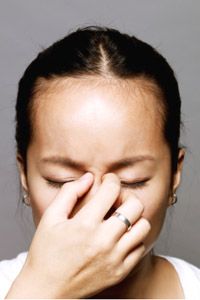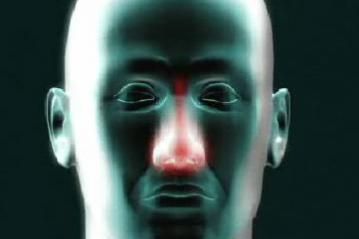Eye allergies happen when something you're allergic to gets onto your eye's conjunctiva membrane. Your immune system overreacts and tells antibodies to go take care of the situation. The antibodies call in the help of a large number of chemicals, including histamine. These chemicals are responsible for your allergic eye symptoms including itching, burning, tearing, redness and swelling. Among the most common triggers of eye allergies are dust mites, pollen, mold and pet dander. They can cause seasonal allergies or year-round allergies, depending on where you live and what you're sensitive to. However, chronic eye allergies can be caused by eye creams and cosmetics, so eye creams are not normally on the list of eye allergy remedies.
Instead, there are a number of other ways to alleviate eye allergies, most of which involve eye drops. Corticosteroid eye drops can take care of severely red, watery or itchy eyes. The downside to them is that they can make you see blurry and long-term use might increase your chances of getting eye infections, glaucoma or cataracts. Antihistamine eye drops, however, only carry the possible side effects of eye inflammation if you wear contacts, and occasionally red, watery eyes, headaches and a little bit of burning. The plus side to antihistamine eye drops is that they relieve the itching and swelling in your eyes, and often the redness. Decongestant eye drops are used to relieve the redness and itching as well, and the risks that come with overuse are damaged blood vessels and redness that won't go away. Mast cell stabilizer eye drops are used to prevent the allergy-related chemicals from being released in your body; they're used to alleviate redness and itching eyes. Saline rinses are good to wash the allergens out of your eyes.
Advertisement
Other ways to handle eye allergies are through oral antihistamines and possibly immunotherapy, also known as allergy shots.
Advertisement

